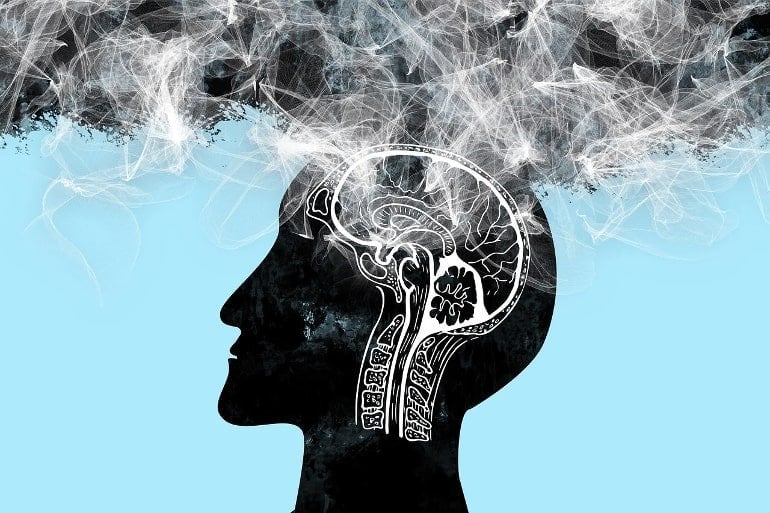Summary: Researchers provide 11 signs and symptoms of cognitive problems to be aware of, as they may signify the onset of dementia.
Source: University of Delaware
Most people with dementia first experience symptoms around age 65 or older. However, some people develop symptoms earlier in life – sometimes as young as their 30s.
Many symptoms of early- versus later- onset dementia are the same, except that someone with early-onset dementia is more likely to have notable changes in their mood, personality, behavior, or communication abilities early in the course of their condition.
Dementia from Alzheimer’s disease affects more women than men, and they may have slightly different trajectories. However, the early signs tend to be the same, according to Matthew Cohen, associate professor of communication sciences and disorders at the University of Delaware and associate director of the Delaware Center for Cognitive Aging Research.
Cohen said it’s normal for the brain to make mistakes, particularly as it ages. He offers 11 signs and symptoms that might suggest a health condition that affects thinking.
1. Daily problems with thinking and/or memory (e.g., asking the same questions over and over; increasingly relying on memory aids or other people to remember things).
2. New difficulty handling complicated financial affairs (e.g., paying bills and balancing a checkbook) or falling for scams.
3. Familiar tasks become challenging (e.g., driving to a familiar location; remembering the rules to a favorite game).
4. Losing track of dates, places, and appointments.
5. Changes in visual perception like understanding visual images and judging spatial relationships (e.g., distance when driving).
6. New problems with spoken and written language. It’s normal to occasionally have trouble finding the right word. However, it’s worth getting checked out if these problems are notably worse than other people of the same age or affect a person’s ability to express him or herself; or if there is difficulty following or joining a conversation.

7. Misplacing things and losing the ability to retrace steps. It’s normal to misplace things from time to time, but if a person has difficulty retracing their steps, or accuses others of stealing, it might be a sign of a health condition.
8. Making bad decisions or decisions that are uncharacteristic of the person.
9. Paying less attention to personal care (e.g., bathing, grooming).
10. Withdrawal from work or social activities like hobbies, social activities, or other engagements.
11. Changes in mood and personality. For example, becoming confused, suspicious, depressed, fearful or anxious; experiencing a loss of empathy (e.g., not showing concern for other people); or forgetting how to act in public (e.g., making rude comments; taking food from someone else’s plate).
What should patients do if they or a loved one notices these symptoms?
The first step is finding a health care provider with whom you feel comfortable, ideally your primary care clinician, Cohen said.
He said that people are often surprised and encouraged to learn that up to 40% of cases of dementia can be delayed or prevented by living a healthy lifestyle (e.g., exercising and eating a good diet), managing medical conditions (e.g., high blood pressure, high cholesterol, depression), sleeping well, using hearing aids if you need them, and staying mentally and socially active.
About this dementia research news
Author: Peter Bothum
Source: University of Delaware
Contact: Peter Bothum – University of Delaware
Image: The image is in the public domain







